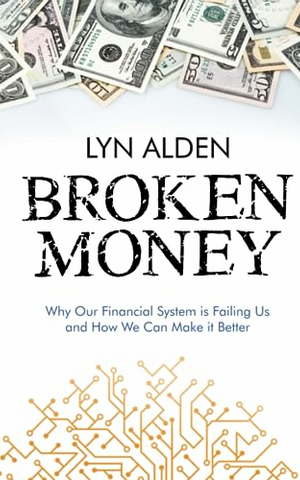
Broken Money: Why Our Financial System is Failing Us and How We Can Make it Better
- Book
- Nov 16, 2021
- #Economics #Money #History
A Comprehensive Overview of the Past, Present, and Future of Money
Broken Money explores the history of money through the lens of technology. Politics can affect things temporarily...
Show More
Number of Pages: 538
ISBN-13: 979-8988666301
ASIN: B0CG83QBJ6
Mentions
See All
Troy Cross @thetrocro
·
Nov 4, 2023
Had a shower thought about money thanks to an observation in @LynAldenContact’s excellent book. When shells were money they were proudly displayed on necklaces or sewn into clothing. Why wear your money? Because the money is pretty? Sure, but more importantly, those shells literally represent favors done for others.
Many of these societies shared essential goods in common, but not these luxuries. To wear a heavy necklace of shells is to tout one’s social credit score, to say “hey I have done a lot for y’all.” One is paid interest, so to speak, on one’s shells in the recognition that one is a giver. And when you give someone else some shells, you are giving them some social credit while diminishing your own. That’s actually the currency, that respect and gratitude and recognition that you command with wealth.
We think of money in a forward-looking way: it’s power. But money has been worn, equally, because money literally was virtue in some societies, it was seen in a backward-looking way, the mark of someone who does the dishes, takes on a dangerous job, etc., someone who racked up many favors.
Our money is so divorced from virtue that to have a lot of it says almost nothing. It could mean you got lucky, served in congress, had insider info, exploited slave labor, etc. or built something cool and appreciated by millions (though perhaps you merely found the way to profit, rather than actually doing the grunt work.)
To flaunt wealth now is to flaunt power and connections, not goodness. And… not that we can restore this connection in our global economy, but that’s another way in which our money is broken. Wealth, in some settings, used to be simply and uncontroversial a good thing, because money itself was a record of goodness.